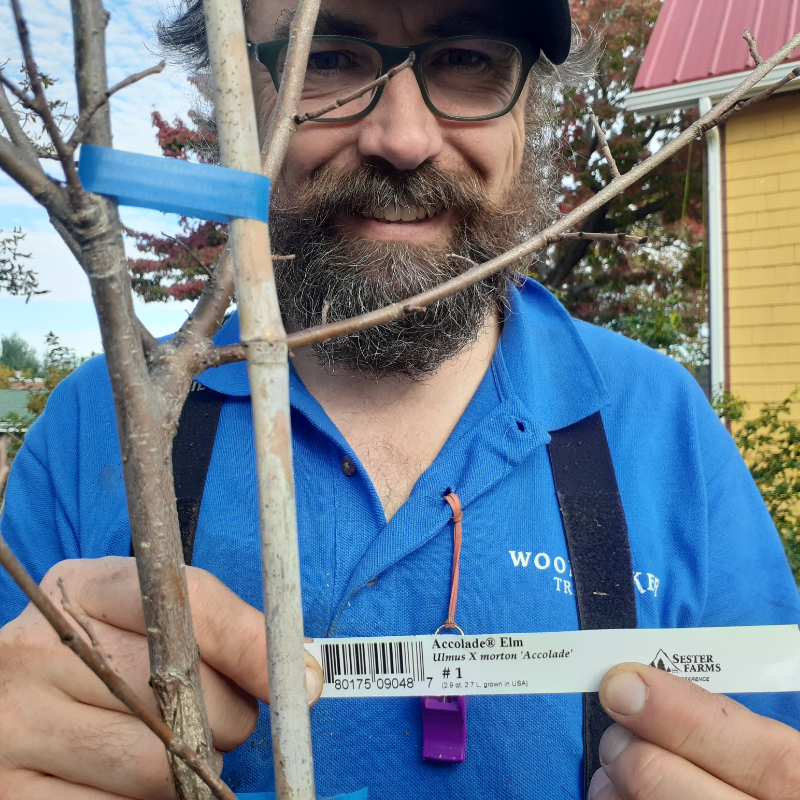1. FALL HOURS AND OPERATION
2. HURRICANE SEASON
3. FALL PLANTING SCHEDULE
4. WELCOME BACK KEVIN!
5. DUTCH ELM DISEASE MANAGEMENT UPDATE
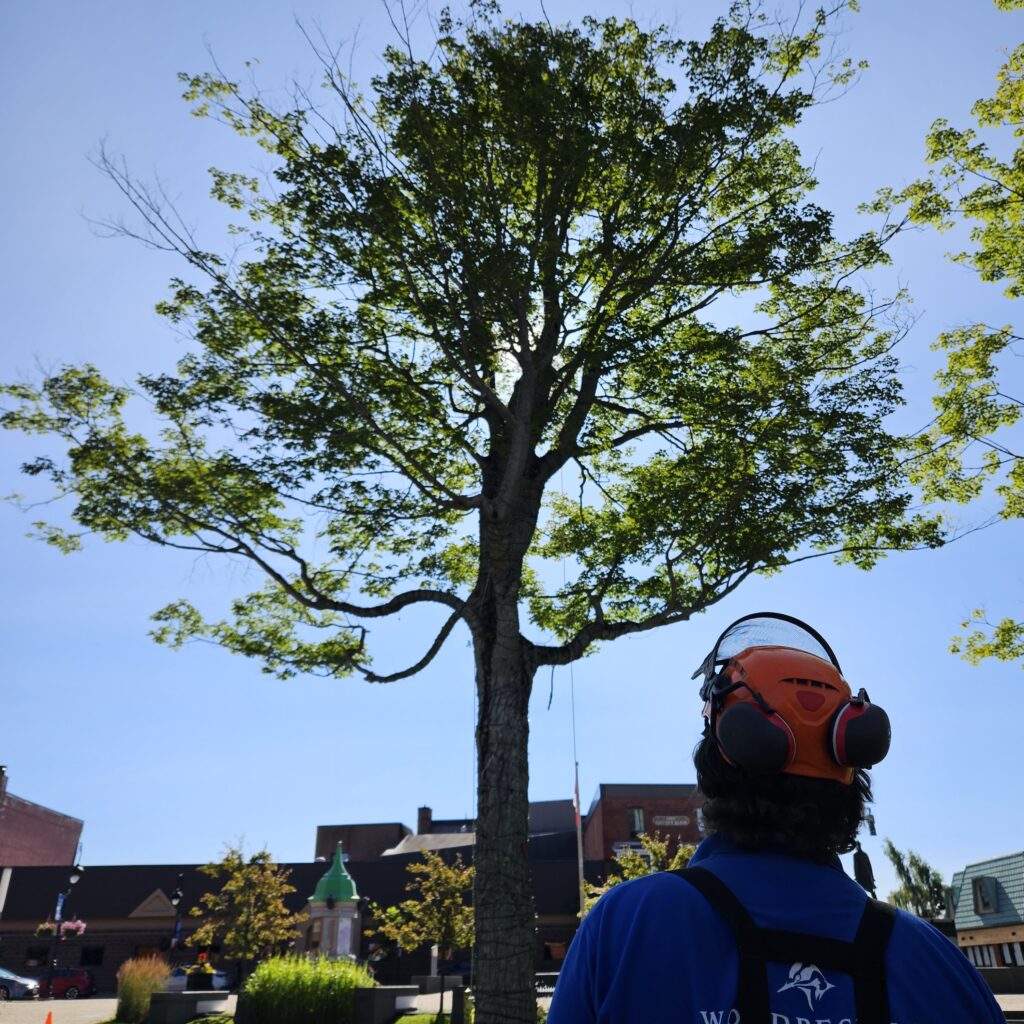
Expert tree care by the preservation specialists

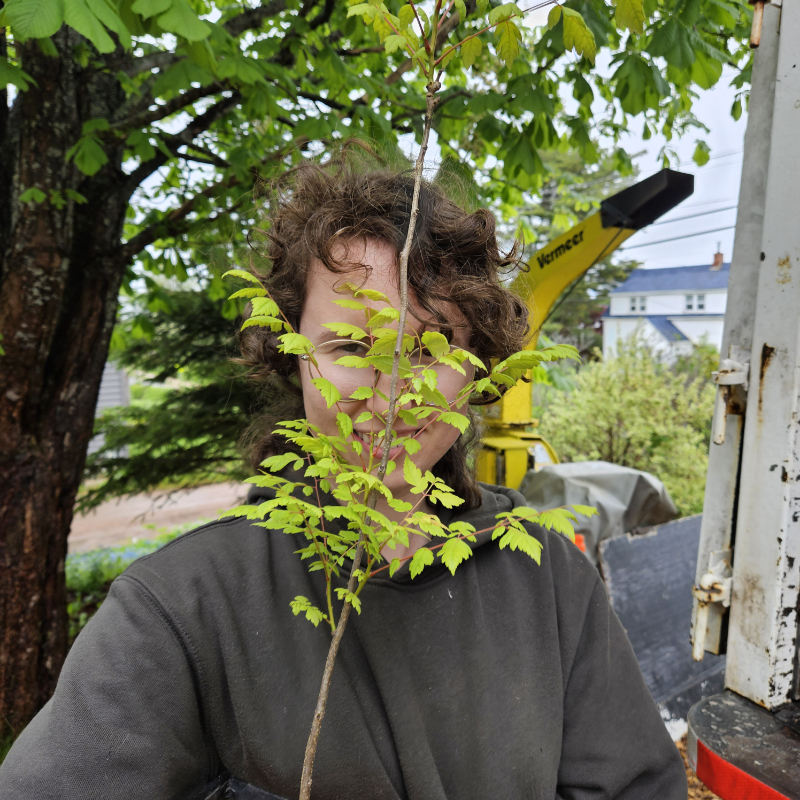
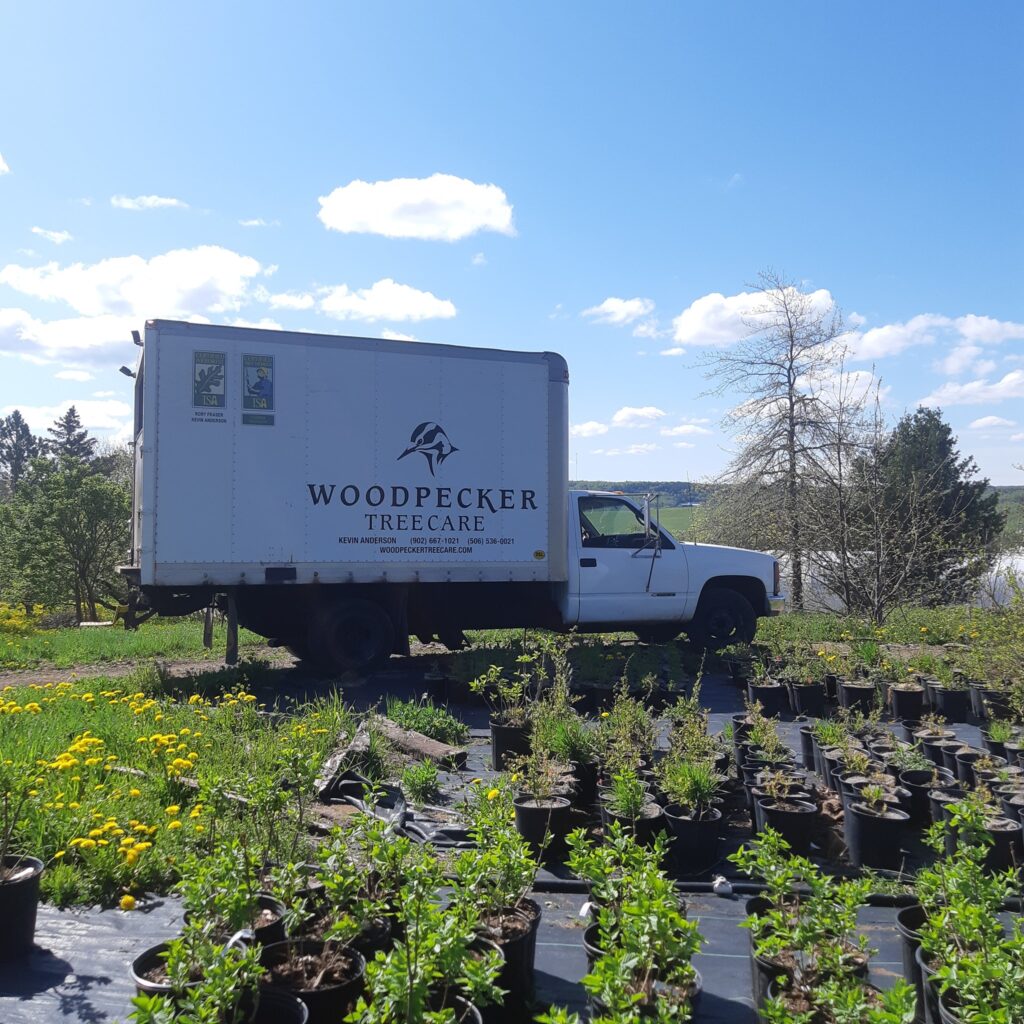
Please note that our 2023 DutchTrig queue is now closed.
Last summer we inoculated over 50 elm trees with DutchTrig, a preventative treatment that prevents the deadly Dutch Elm Disease. Next year, we want to expand the project to ensure more elms are preserved. Our DutchTrig queue is open to all elm owners and elm lovers out there!
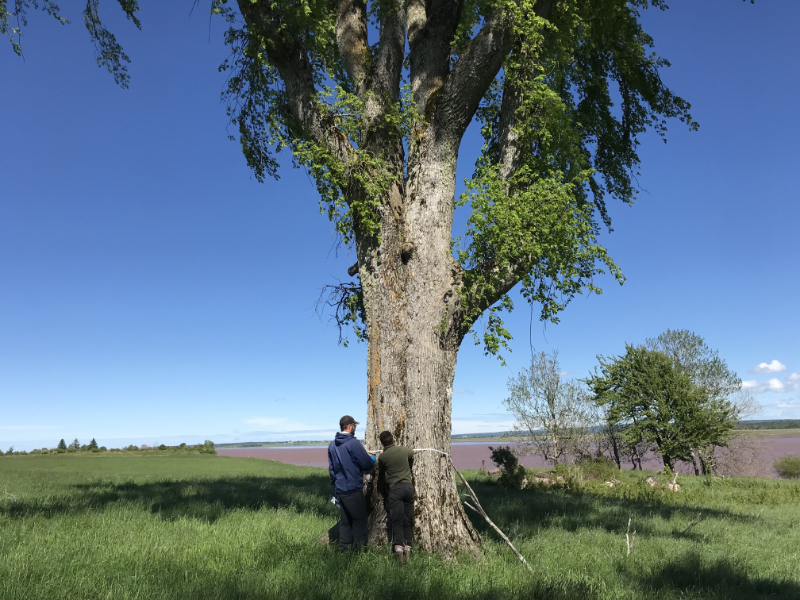
Everything seems to be blooming early this year, including lilacs (did anyone else’s rhubarb bolt before they managed to harvest?). It was a delightful surprise to stroll down the street with their floral scent wafting through the late-May breeze, but for Woodpecker Tree Care that meant it was time to spring into action. When the lilacs are blooming, it’s time for us to cruise around the countryside and inoculate valuable Maritime elm trees.
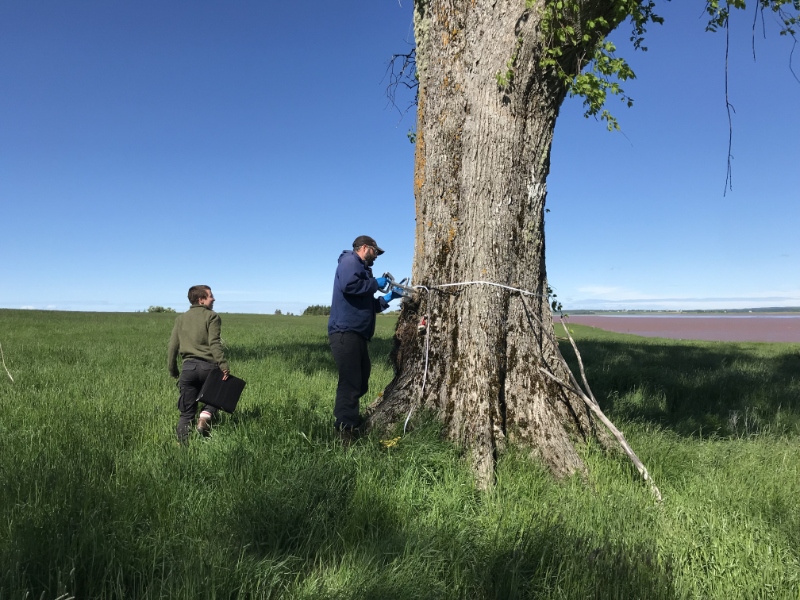
Woodpecker HQ is thrilled to encounter an elm log in the woodshed, but not everyone is as enthusiastic about burning elm. Elms hold moisture for a long time, and need to dry out in the right conditions before being thrown in the stove. It’s also more difficult to split with an axe, since its fibers interlock and resist being pulled apart. Thankfully, the Woodpeckers have access to a hydraulic log splitter that makes short work of a stubborn elm.
This log was about to go onto the fire when Kevin noticed some giveaway signs of one of the most common problems we see in urban trees.
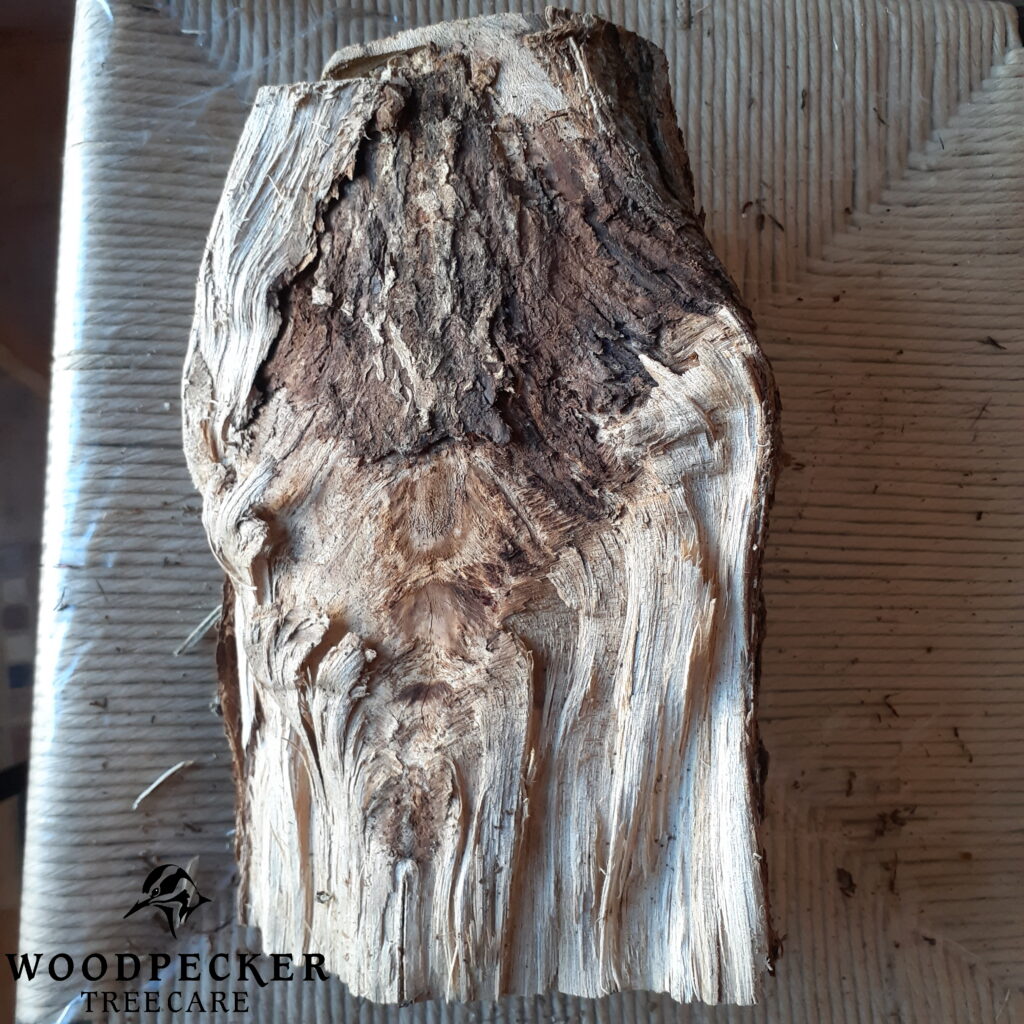
The Maritime Elm Protection Initiative (MEPI) is looking for sponsors to help cover the cost of inoculating valuable elms against Dutch Elm Disease. We inoculate elms with DutchTrig in the springtime, and hope to add this valuable tree to our list.
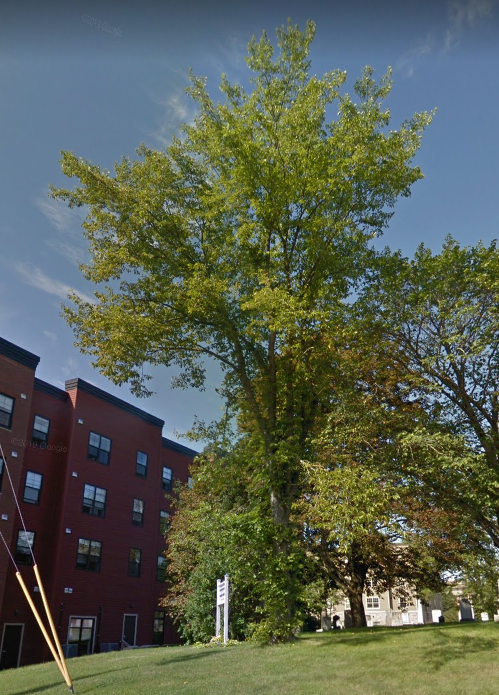
Looking forward to spring? The Woodpeckers who run the Maritime Elm Protection Initiative (MEPI) are too. Spring is when we load up our injectors and inoculate valuable elms against Dutch Elm Disease. As we go into our third year, we are actively looking for sponsors to help cover the costs of this project. We want to give you a chance to meet elms in need, and invite you to consider sponsoring the treatment of valuable Maritime elms.
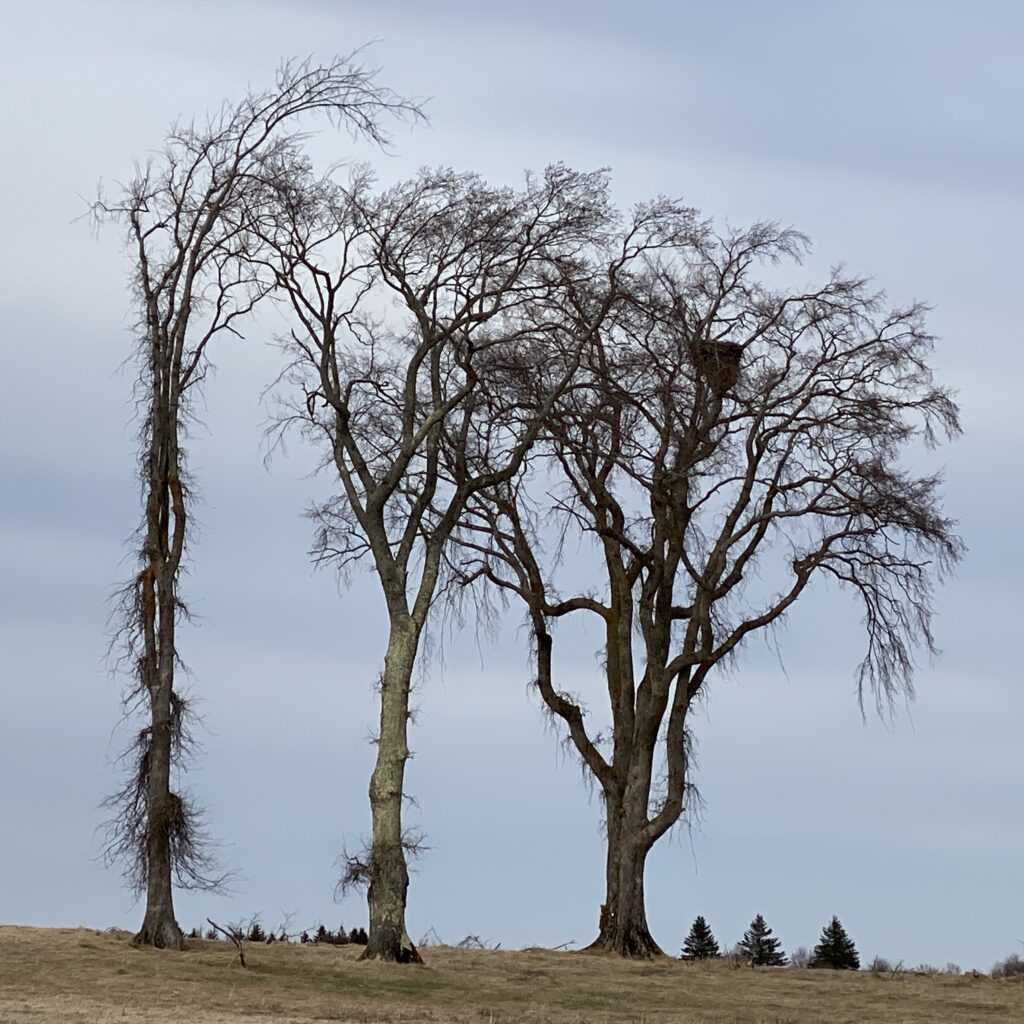
Woodpecker Tree Care is all about preservation, but when we do have to cut a tree down we do our best to repurpose the wood (if it’s good quality). Sometimes the property owner is delighted to keep it for their furnace or share it with their neighbours, or John will happily take it home for his beloved wood stove and fire pit. One of the more interesting places our wood has ended up is in Jake Fenwick’s workshop, a local homesteader and bowyer (bow-maker) in Sackville NB.
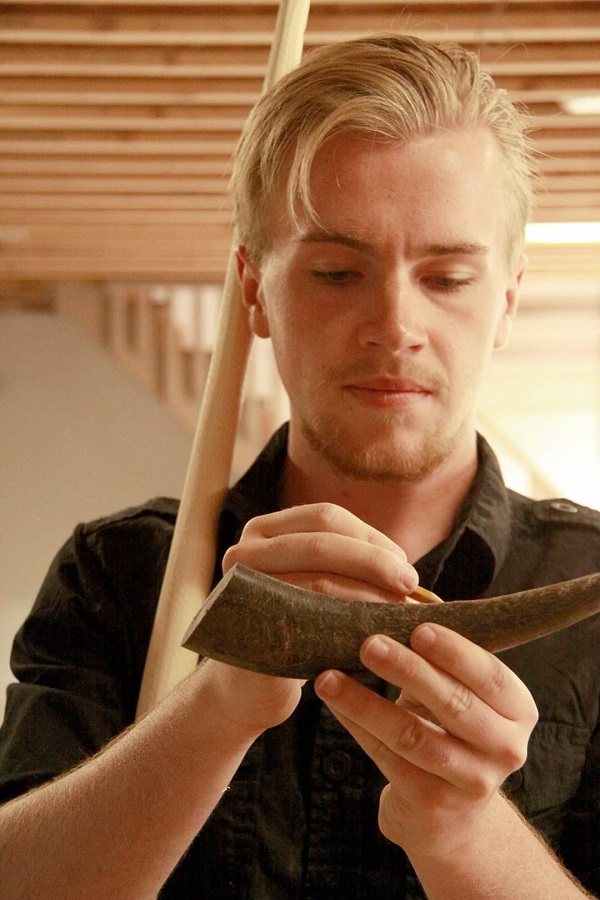
John optimistically purchased this Ulmus “Morton” elm hybrid, more commonly known as an “Accolade” elm, from Charlie the Tree Guy this fall. The Accolade cultivar was originally planted in 1924 at the famous Morton Arboretum (Lisle, Illinois). In 2005, the Accolade was studied alongside several cultivars in the US National Elm Trial, which determined the survival rate among elms. At the time, elm trees were dying off by tens of millions due to Dutch Elm Disease (DED) and other pests. Accolade came out as one of the top hybrid cultivars, with a 92.5% survival rate.
